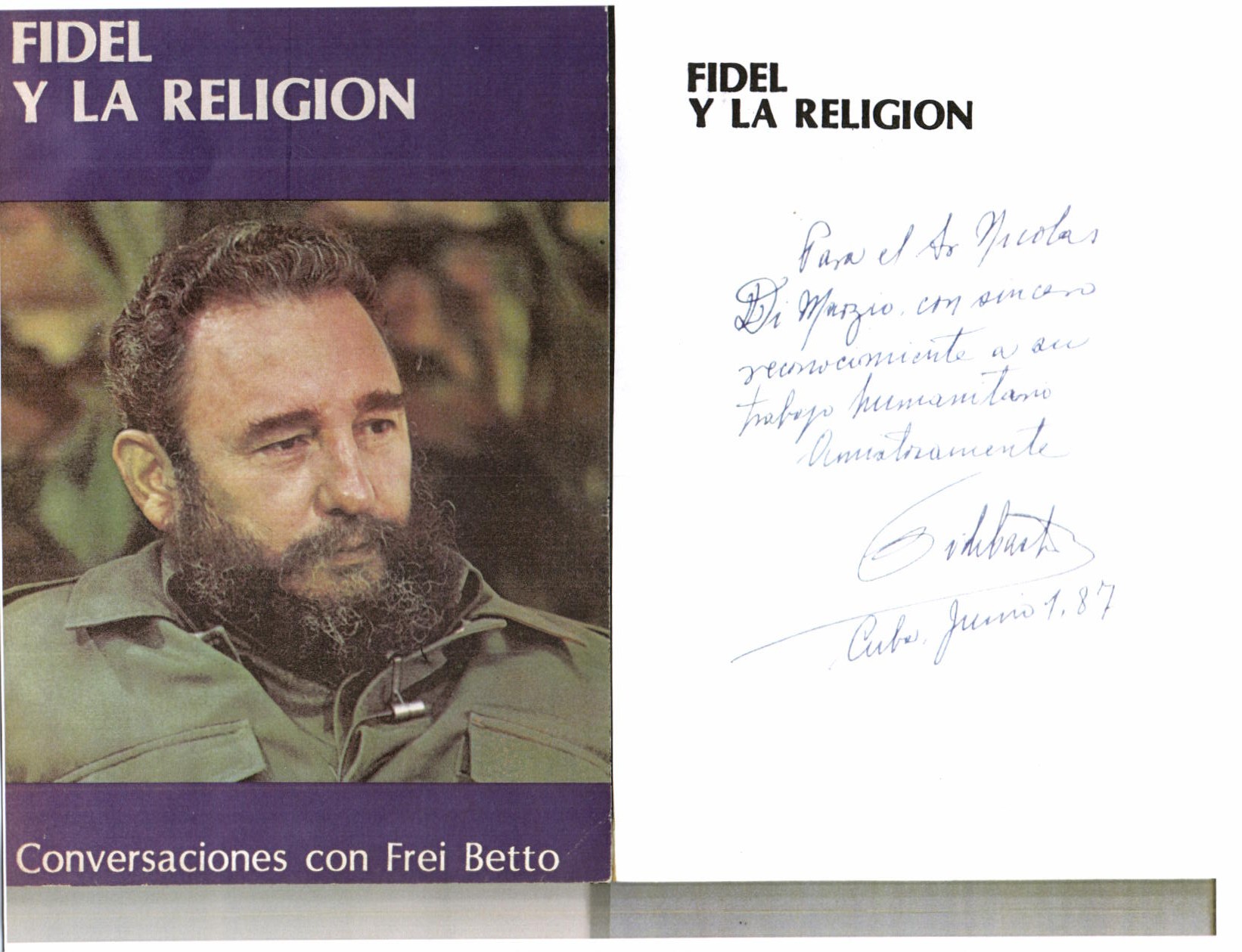By Bishop Nicholas DiMarzio
In June of 1987, as a representative of the Bishops’ Conference of the United States in my role as executive director of their migration and refugee services, I met alone and personally with Fidel Castro for two-late night sessions beginning at midnight in which I advocated for the release of the almost 900 Plantados, political prisoners who had been incarcerated by the then-president for 28 years following the beginning of the Communist revolution which he lead.
I cannot say that I knew Fidel Castro, but I can report on those late-night conversations which gave me an insight into this man who turned day into night in order to conduct the normal business of his country.
Perhaps even more insight is available when in 1985 Fidel had 24-hours of conversation with Frei Betto, a Brazilian religious brother who questioned Fidel on many things, especially his feelings towards religion. A book was later published entitled, “Fidel Y La Religion,” “Fidel and Religion,” which stands as a testimony to this man’s religious thoughts and his thoughts about religion.
 Upon learning of his death, I perused the signed copy of that book which Fidel gave me at the end of our meetings, stating his “sincere recognition of my humanitarian work” in trying to free those he imprisoned, his understanding of religion became clearer to me.
Upon learning of his death, I perused the signed copy of that book which Fidel gave me at the end of our meetings, stating his “sincere recognition of my humanitarian work” in trying to free those he imprisoned, his understanding of religion became clearer to me.
Fidel saw religion as an absolute, just as absolute as his Communist doctrine. I cannot say that he was an atheist, but I can certainly say that he was a devoted Communist. Religion did not figure into the Socialist solution for the elimination of poverty in society. Unfortunately, the Communist solution did not have any room for human freedom or the democratic process.
The death of Fidel Castro perhaps opens the door to renewed openness for the people of Cuba who for now over 60 years may have forgotten what democracy is all about. There are many who suffered death and imprisonment in order that “the revolution could succeed.” Nothing could stand in the way of his absolute dictatorship, worse than what he had overthrown.
Some people wonder if they should pray for Fidel? Many were happy that he died. We heard on the news that others have condemned him to hell. Yet, this complicated man believed he was always right, which did not correspond to reality. Fidel lived in his own world of many delusions. I believe that he needs prayers, if anyone ever needed prayers.
